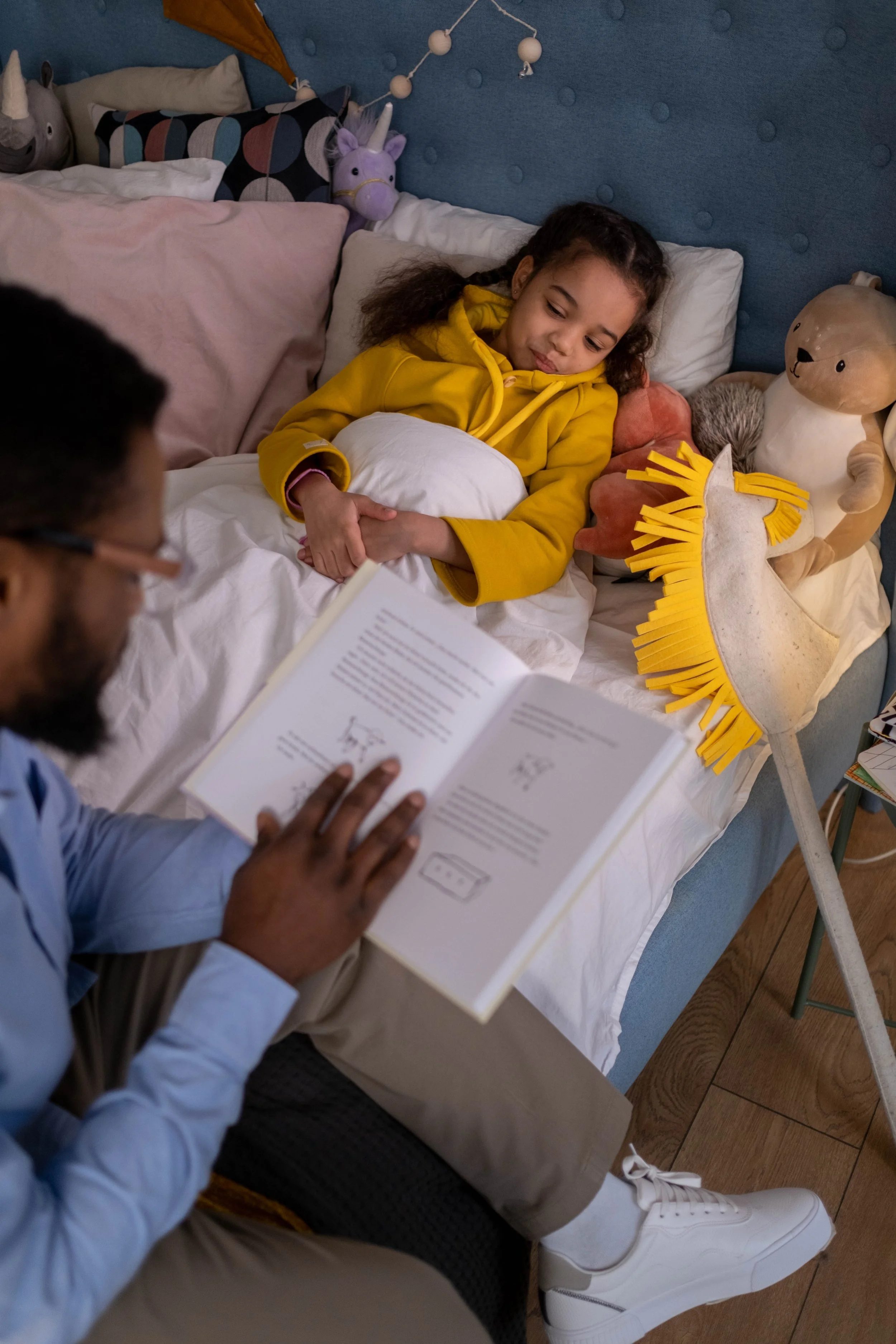Beyond Bedtime Stories: The Unbelievable Cognitive Benefits of Reading to Kids You Never Knew
We have all heard the age-old advice: Reading to kids is good. It is a nightly ritual in many households, as iconic as bedtime stories themselves. However, did you know that this simple act goes beyond just entertainment?
At the Calm Kids Club, we are committed to enhancing children's mental health, wellness, and mindfulness. We have delved into the science to explore the cognitive benefits of reading to children.
Cognitive Advancements: It is More Than Just Words
According to a study published in the journal "Pediatrics," children who are read to frequently are more likely to develop a robust vocabulary and excel in understanding complex sentences. This, in turn, contributes significantly to their academic performance. It is not just about learning new words but about fostering children's mental well-being by giving them the tools to articulate their thoughts and feelings better.
Imagine a child trying to describe their emotions but lacking the words to do so. Reading various books exposes children to a wealth of vocabulary they can apply in real life. A child who has heard the word "frustrated" in a story can better articulate their feelings the next time they encounter a challenging task.
Emotional Intelligence: The Cornerstone of Well-Being
A "Child Development" meta-analysis demonstrates that reading promotes empathy and emotional intelligence. Stories often require kids to understand characters' motivations, feelings, and actions, creating a natural setting for them to practice empathy.
Understanding emotions is crucial for academic success and vital for children's mental health and wellness. When a child can empathize with a friend who is feeling down, it improves their friendship and contributes to their emotional well-being.
Enhanced Focus and Concentration: The Mindfulness Connection
Reading requires a level of concentration and focus that many other activities do not. According to "Educational Psychology," children who engage in reading activities more frequently are better at focusing on tasks. This has broad implications for children's mindfulness and overall mental wellness.
The focus gained from reading can make kids more mindful and better equipped to tackle their daily tasks, including homework. Improved concentration means less struggle with assignments and more time for activities that enhance children's well-being.
Imagination and Creativity: The Building Blocks of Innovation
According to the "Journal of Creative Behavior," reading fiction can improve creativity and imagination in children. This is not just beneficial for artistic pursuits; it is vital for problem-solving and lateral thinking, skills contributing to children's wellness and mental health.
A child exposed to different worlds, characters, and scenarios through reading is more likely to think creatively when faced with challenges. This can be as simple as figuring out how to build a fort from cushions or as complex as navigating social dynamics at school.
So, the next time you consider reading to a child, remember that you are doing much more than just turning pages; you are actively contributing to their cognitive development, emotional intelligence, and overall well-being. Reading is a cornerstone activity that can significantly influence children's mental health, wellness, and mindfulness for years.
If you want to dive deeper into children's well-being and mindfulness, we invite you to explore articles and resources here at the Calm Kids Club. We offer a range of tools, activities, and community support to assist with the holistic development of children. Join us, and let us make the childhood journey an enriching experience for every kid.


